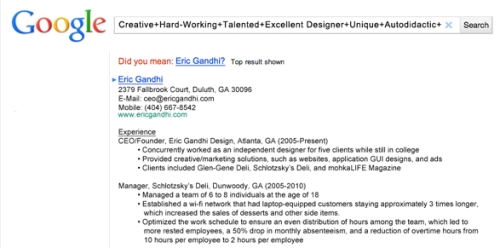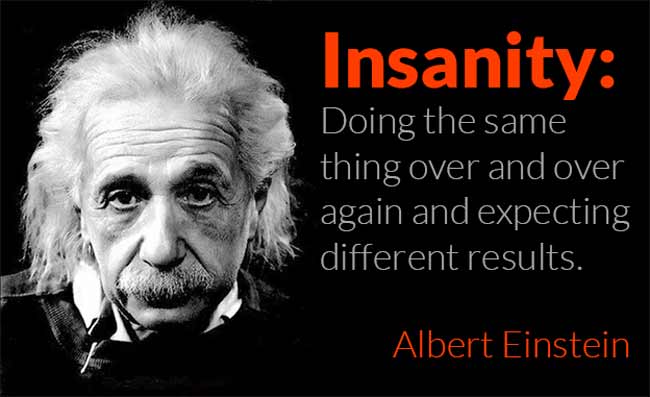
Voiceover jobs are not easy to come by, particularly if you are just starting out in the in the voiceover industry.
Many new voiceover actors struggle to get their first job, and for good reason, it is a very competitive market. Most job markets are fiercely competitive, now forcing potential candidates to have to work harder to get in front of the people handing out the work.
We live in a global economy… much of which is enabled through the internet. As long as people have access to the internet they can work and live almost anywhere. This is true for many professions, including voiceover.
No matter what profession you are in you soon realise that you have to compete for work. You can’t afford to stand still or be lazy in your approach.
If you are starting out in the voiceover industry, getting your first break can be a problem. Even though you may have the talent, your first chance to prove may be hard to come by.
One of the things that you have to remember is that to stand out, you need to do something different, to be better, smarter and be productive with your time. You just can’t afford to be tardy or lax about how you approach getting voiceover jobs.
The good news is that the more you put into being better than others, the more you will stand out and this in turn will result in getting voiceover jobs.
There are two parts to breaking through; one is getting the basics right and ensuring there are no holes in how you present yourself, the other involves a bit of creative thinking.
The fact is if you’re not getting any results from your efforts then you know you need to change what you are doing. This nice quote from Einstein is a good reminder that you have to assess what may be going wrong, put a different hat on and start to think about how to change.
The Basics of Getting Voiceover Jobs
If we have a ‘House of straw’, then we are looking to fail in the first place. When you look at yourself you need to be critical about the basics and ensure that they are in place.
#1 – BRANDING
Do you have a consistent and clear identity? Branding is not just about a logo, it is how people perceive you and the perceptions they form as a result. It means that every part of how you present yourself to the world is up for judgement good or bad. Professionally as a voiceover actor you need to control your assets and value how they are used – photographs, copy, posts on social media, articles online, your profile on any and all platforms you use for jobs.
#2 – VALUE PROPOSITION
Is it easy for people to understand who you are and how they can benefit from your services? Do you have experience in a particular niche, what are the characteristics of your voice that make you unique, what type of work is your voice suited to (it won’t be suitable for everything), what studio experience do you have, what companies have you worked for, where can they easily find examples of your work…?
#3 – TARGETED
What niche are you focused on in voiceover? How do you research the industry (or don’t you)? do you know all the companies / agents and casting directors that hire for your niche? Do you know what is affecting your niche e.g. are audiobooks on the increase or decline, what are the trends? What companies are expanding or taking over others? Being aware of all these things will help you spot opportunities. Before applying for a job do you know all there is to know about a company?
#4 – TESTIMONIALS
Do you have relevant testimonials from previous work / clients? Are they up-to-date? Do you have a portfolio of client work as demos that can be accessed alongside each testimonial?
#5 – CV
Is your CV up-to-date, is it the same across all platforms? Is it focused and optimised for the type of voiceover work that fits to your niche skill set? Is it online and in a standardised format, such as on Spotlight?
#6 – SHOWREEL
Are your main showreels up-to-date? Are they high quality? Are they short, snappy and with your best work at the beginning?
If you audited yourself online and across all the media you use can you hand on heart say that you have all this in order?
GETTING CREATIVE WITH GETTING VOICEOVER JOBS
So lets assume you have the foundations in place.
You now can be quite creative in how you get work.
Being creative though is quite broad so let’s break this into two parts:
- Focus on what we are trying to achieve – that way we can be creative but get specific about our ideas.
- Produce ideas that could help us stand out from the crowd and achieve our goal
Many people think that they aren’t creative. As we grow up we often lose the confidence to be creative as we get stuck into doing the day-to-day routines of our lives.
Sir Ken Robinson, a brilliant thinker, researcher and writer in the area of innovation and human resources, claims that by the time kids became adults, most have lost their capacity to be creative; they have become frightened to be wrong – they get ‘educated out of creativity’.
However we all have it in us to be creative, often we just need to find the time, right environment and use the right tools and methods.
So before we go any further I have listed below some great blog posts about how to be creative:
- This blog contains some great everyday tips to be ing more creative – 101 Ways to Be More Creative
- If you are interested in a more detailed approach backed by solid research read this article – How to Encourage More Creative Thinking
- A blog post with practical ideas and steps on how to become more creative – the key takeout is that it is, like most things in life, something you need to practice – How to Boost Your Creativity
For those of you that prefer video I have added below two Ted Talks: one by Elizabeth Gilbert called your Elusive Creative Genius and one by David Kelly titled How to build your creative confidence.
APPLYING YOUR CREATIVITY TO GET VOICEOVER JOBS

Start with the end in mind. In a previous blog I wrote about the importance of being focused. In particular that means you know what you are trying to achieve.
Remember this post is about getting voiceover jobs for beginners, people that are just starting out and are looking to rapidly build their portfolio.
#1 – THE DIRECT APPROACH
Simply bombarding a casting director with phone calls or emails can come across as desperate, annoying, or even creepy.
So if you do want to be direct you need to make it count without looking odd. Done well, this can bring in brilliant results, but it can also be high risk and result in your damaging your ‘personal brand’ if you simply copy ideas that others have used… or don’t put in enough thought, time and effort to making it a unique, relevant and a memorable experience.
The basis of a direct approach is that you target one person or one company (you will only succeed if you have done your research and come up with a great idea).
Some examples:
The Google Search Resume
This has to be one of the coolest CVs ever. On his LinkedIn profile, Eric Gandhi had included his CV which had been mocked up to look like a Google search engine results page. An employee at Google spotted it and immediately recommended Eric for a job, which led to an interview. Though it’s not clear whether the interview resulted in a job, it’s a great example of getting creative in order to get noticed and showing that you really know your industry.
Your Targets Name

The next one is quite sneaky, actually. Alec Brownstein really wanted to work in advertising, so he took out cheap Google ads with the names of advertising executives in the title. After all, everyone googles themselves! Ian Reichenthal of Young and Rubicam saw the ad, called Brownstein in for an interview and eventually hired him.
Tips for success: Google ads can be a very smart way to get someone to notice you, incredibly cheap if you know how, and anyone can do it…another person I know used Facebook ads in much the same way…not targeting on an exact name but a profile only 1 person in an area would see.
#2 – THE VOLUNTEER / CHARITY APPROACH
Charities and causes often need help but can’t afford to pay much, if at all. These organisations still need to market themselves though, especially across digital channels, as more and more of their audience now spend their time online.
This means that charities are increasingly using digital media such as videos and audio as part of their media mix. If you team up with others e.g. a video producer/editor, creative director, you could volunteer to help them with their campaigns and at the same time get good experience and exposure.
An example:

Michael Solana already had a job, editing non-fiction for a New York publishing house. He felt like he wasn’t living life to the full, though. A huge Star Trek fan, he discovered a project to build cities in the middle of the ocean and started volunteering for them. “The idea was rad, and seeking out like-minded people was important to me,” says Michael Solana. He ended up becoming mates with the project’s founder and headed west to take a paid job with the project in California!
#3 – THE PUBLICITY APPROACH
There is no ‘one way’ for this. The underlying idea is to get in the press – that could be local or national. So from the outset you need to come up with an idea that is newsworthy or has potential to go viral on the internet.
According to Jonah Berger’s research on word of mouth and vitality, there are six principles that lead to something going viral:
- Social Currency
- Triggers
- Emotion
- Public
- Practical Value
- Stories
Some Examples
PR and social media consultant Graeme Anthony did a perfectly normal video CV… but showed his fresh thinking by making it interactive! Employers loved it, and he got so many job offers through his clever CV idea that he decided to go freelance and work for himself instead…
Adam Pacitti graduated in 2012 with a first class degree in media production. After 250 job applications, he was still unemployed. In a stroke of genius, Adam rented a billboard and did a viral social media campaign around it.

Summary Of How To Get Voiceover Jobs Creatively
I hope these ideas and examples show you the potential of what you can do and achieve when trying to get voiceover jobs.
Don’t forget that common courtesy, good manners and using simple, old-fashioned methods like writing a handwritten thank-you letter can help you stand out.
Some simple steps to follow in looking for voiceover jobs:
#1. Build a solid strategy for your personal brand
#2. Put a set of strong foundations in place – your profile, images, copy, website…
#3. Stay focused, do your homework and research – be different
#4. Look to add value not just take it – have a clear value proposition
#5. Promote yourself creatively
#6. Rinse and repeat – learn from any mistakes, don’t give up and maintain your brand – if you treasure it and so will others

Hello, Hugh. Fab blog, packed with brilliant advice!
Sorry I can’t make the Manchester social as I will be away. Hope it goes well.
Take care and all the best.
Kindest regards,
Brenda
Much appreciated Brenda!
Excellent post. Networking is key, build connections early on and it will benefit you later in your voice over career.
Thanks Rickie!
Thanks Hugh – I’m on a plane now en route to a destination event for my ‘day job’. As much as I’d rather be back in my home studio; I know this job (now) provides the means to pursue/build the VO. So after reading this you’ve inspired me to LOOK at the day job differently; just MAYBE I’ll find a VO OPPORTUNITY waiting to be revealed!
Voice acting exciting and interesting profession. I love reading reading novels and l love cartoons and and l want to acartoom voice actor how do I go about it .
thank you🤗
I always enjoy the packed on advice! thank you so much Hugh!
Some times as professionals in the VO business we forget basic ideas on how to promote our services, we get too comfortable. Hitting REFRESH in our marketing techniques never hurts.